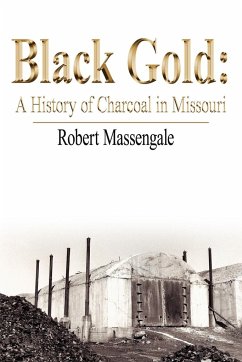The production of charcoal is one of the oldest industries in Missouri, beginning before it became a state in 1821. Immigrants and their descendents migrated west seeking job opportunities and new lands. They brought with them the trades they learned in the "old country." Like the miners who went west to the gold fields in 1849, these laborers began producing "black gold" to support their families. The industry had a major role in the development of the State. Roads were built where previously only trails existed. Communities developed around the iron furnaces where the charcoal was needed. We visit these cities today on modern highways that evolved from these early roads. Later, the railroads put lines through the cities which improved the transportation of raw materials and products. As the state grew, the industries and markets changed. The charcoal industry was no exception. The cost of producing charcoal iron was too high compared to the use of coke made from coal. As this market decreased the wood chemical industry increased and charcoal became the by-product. New markets were sought for this abundant material. Environmentalism attacked the industry smoke problems in the 1970s. Production facilities were generally primitive and could not be sustained with the advance of technology. This caused a major decrease in the numbers of small production plants and allowed only the major investors to stay in business. Changes continue in the industry and the future is unknown. The plants and operators of the past deserve much recognition for having played an important part in the history and development of the State.








